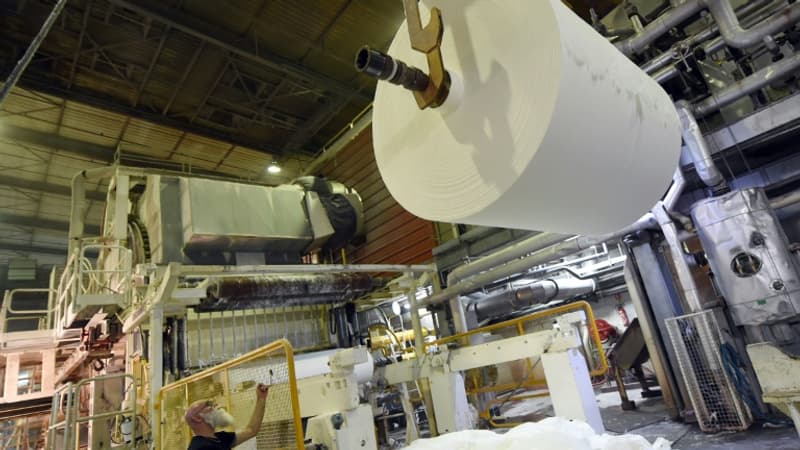How to encourage companies to produce more ecological products? Faced with the exorbitant cost of decarbonization, economists are divided on how best to incentivize and trigger the necessary investments.
“We must not tell stories: if we want to decarbonise, it will cost money,” explains Lionel Fontagné, scientific adviser at Cepii (Center for Prospective Studies and International Information) invited to speak on Friday in Paris during the Printemps de l’économie, a series of conferences and debates under the patronage of the Economic, Social and Environmental Council (CESE).
According to a recent study by the credit insurer Allianz Trade, the manufacturing sector alone (around 25% of greenhouse gas emissions in Europe) needs €210 billion to reach the European goal of carbon neutrality by 2050.
The faster companies act, the less it will cost
“The paper industry will need the largest investments (78.4 billion), followed by metallurgy (55.4 billion) and cement (37.6 billion),” details Allianz Trade.
Whatever the incentives for decarbonization, the faster companies act, the less it will cost, Banque de France economists insist.
A conclusion similar to the more general one of the IPCC on global warming. “The economic and social benefits of limiting global warming to 2°C outweigh the cost of the measures to be implemented,” these UN experts insisted at the end of March.
The United States did not hesitate to open the checkbook widely with the Inflation Reduction Act. Implemented since 2022, this package of measures provides generous subsidies for industries committed to decarbonisation.
“When we give subsidies to green energies, it is very good for their development but it does not affect the ‘brown’ economy,” however warns Agnès Bénassy-Quéré, deputy governor of the Banque de France.
In other words, financing the development of renewable energies does not necessarily have an impact on the consumption of fossil fuels, which are more polluting but are sometimes preferred by consumers due to their lower cost.
“No Consensus”
And “if all the countries of the world adopt the American strategy of public investment and subsidies to private investment, we run the risk of having a rise in interest rates worldwide”, warns Agnès Bénassy-Quéré, which will ultimately make investments in decarbonization are more expensive.
The Lieutenant Governor of the Banque de France rather defends the European strategy, based on a kind of “carbon tax” on imports of polluting products.
But like any fiscal mechanism, this system is accused by some of harming European competitiveness, by increasing costs for companies from the Old Continent that depend on imported components to produce.
The impact of decarbonization policies is very different “depending on whether other countries in the world do nothing or, on the contrary, have ambitious policies” for ecological transition, says Mame Fatou Diagne, an OECD economist.
Additional brake on decarbonization, “there is no consensus on a miraculous method to achieve the result”, points out Lionel Fontagné.
Four possible scenarios
In any case, specialists seem to agree on the determining role of private investment.
In a recently published study, Banque de France economists imagined four possible decarbonization scenarios and measured their respective impact on inflation and growth in France.
After five years, the “strong increase in private investment” scenario produces the most favorable effects: inflation is almost one point lower than it would have been in the absence of private investment, and growth is almost one point higher percentage of GDP, according to the study.
To spark this mass of private investment, it is not necessarily necessary to pour subsidies and tax credits into every business. Among the industries that emit the most greenhouse gases, “some currently have sufficient margins and a capacity for innovation that allows them to reinvest” in favor of decarbonization, says Mame Fatou Diagne.
Shipping giants CMA CGM and energy company Totalenergies, for example, made record profits in 2022 (more than €20 billion), enough to give them enough financial comfort to invest in decarbonisation.
Source: BFM TV


